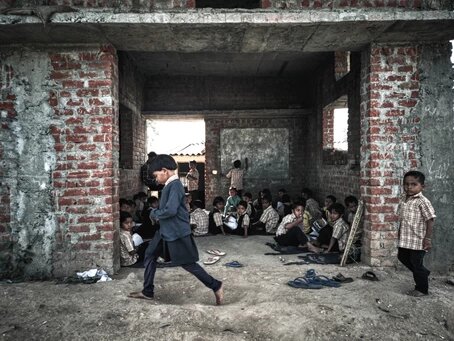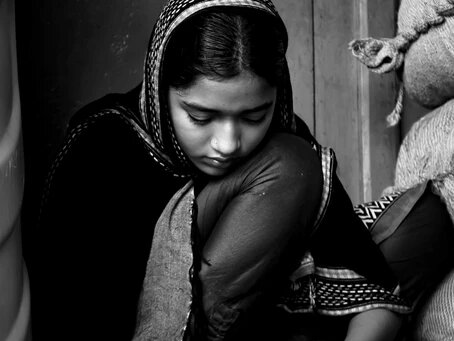In the early months of this year, the world came to a standstill. All the nonessential activities were brought to halt and people were advised to stay inside. A deadly virus has altered our lives in ways and manners we never imagined was possible. As the lockdown was imposed school, colleges, markets and workplaces were closed and since the lockdown also meant restrictions on individual movements and social distancing protocols came into play, most of us had to do away with our domestic help. While the urban middle class is largely dependent on their domestic help for most household tasks including cooking and cleaning, it came as a challenge to many.
India is considered a young country with the youth consisting 65% of the total population and this group was majorly affected most by the lockdown. Their happening and busy lives came to a stop and with a large number of jobs lost, most people went back to their families. With no domestic help around the families were tasked with loads of household chores vis-à-vis their professional work. While in western societies one can find people in a house doing chores together and helping each other out, but when it comes to an Indian household it’s hard to find these responsibilities being shared as either women of the house or the domestic help are considered to be responsible for all household chores.
An article published in The Wire states that “when it comes to chores, middle- and upper-class Indian children miss out. With domestic workers a standard feature in most families, the idea of children contributing to the smooth functioning of their own homes seldom arises.” Most young people in India have either never done a simple house chore or in cases where they have, it is only been in cases of family gatherings or events and not as a force of habit.
Another factor is that the labour division in Indian households is clearly patriarchal. While things seem to be taking a turn for the better yet, in many families even now gender roles are prescribed from a young age; a boy is not expected to do the dishes or any kitchen work. It is strictly restricted to the women of the house whereas girls are not expected to do things as simple as changing bulbs. Usually, a woman’s job is considered secondary since she is not the prime bread earner and while working from home. Although gender roles present a major power struggle, it presents only one side of the problem. The rat race and the need to build a career have pushed the youth to new extremes with increasing productivity and decreasing work-life balance. It often leaves them with very little time of their hands to get involved in household activities.
However, the year 2020 forced a change on the Indian youth. With the domestic helps out of reach, most people were restricted to their houses doing all the household activities that earlier seemed challenging. As they run for colleges, schools and workplaces slowed down, the engagement at the household level increased. A new survey conducted found that young husbands have been participating in housework more.
With new challenges that came with the pandemic, new solutions were sought. Dynamics of gender role, the upbringing of urban Indian youth and their role in a household is definitely being questioned. Importance and difficulty of domestic work is also being realized. It’s still the unpaid work for the women and the underpaid domestic workers are being given due recognition. However, things are changing but we as a society have a long way to go. We need to talk more about the predefined gender roles towards our everyday life.
References- “Are We Talking Enough About Gender Roles This Lockdown Or Otherwise?” Breakthrough, 29 May 2020, inbreakthrough.org/gender-roles-lockdown/.
Gupta, Poorvi. “Not All Men Contribute To Household Chores, So Stop The Glorification.” SheThePeople TV, SheThePeople, 21 Apr. 2020, www.shethepeople.tv/blog/men-contribute-household-chores-glorification/.
Lahiri, Monojit. No Housework Please, Myself Pampered Indian Male! 5 Apr. 2020, www.nationalheraldindia.com/opinion/no-housework-please-myself-pampered-indian-male.
Reddi, Adith P. “Has COVID-19 Led to a More Equitable Division of Labor in South Indian Households?” Anthropology, Longdom Publishing S.L, 9 June 2020, www.longdom.org/open-access/has-covid19-led-to-a-more-equitable-division-of-labor-in-south-indian-households-54247.html.
“Why It’s Important for Children to Do Household Chores.” The Wire, thewire.in/health/why-its-important-for-children-to-do-household-chores. Image by- Karolina Grabowska




